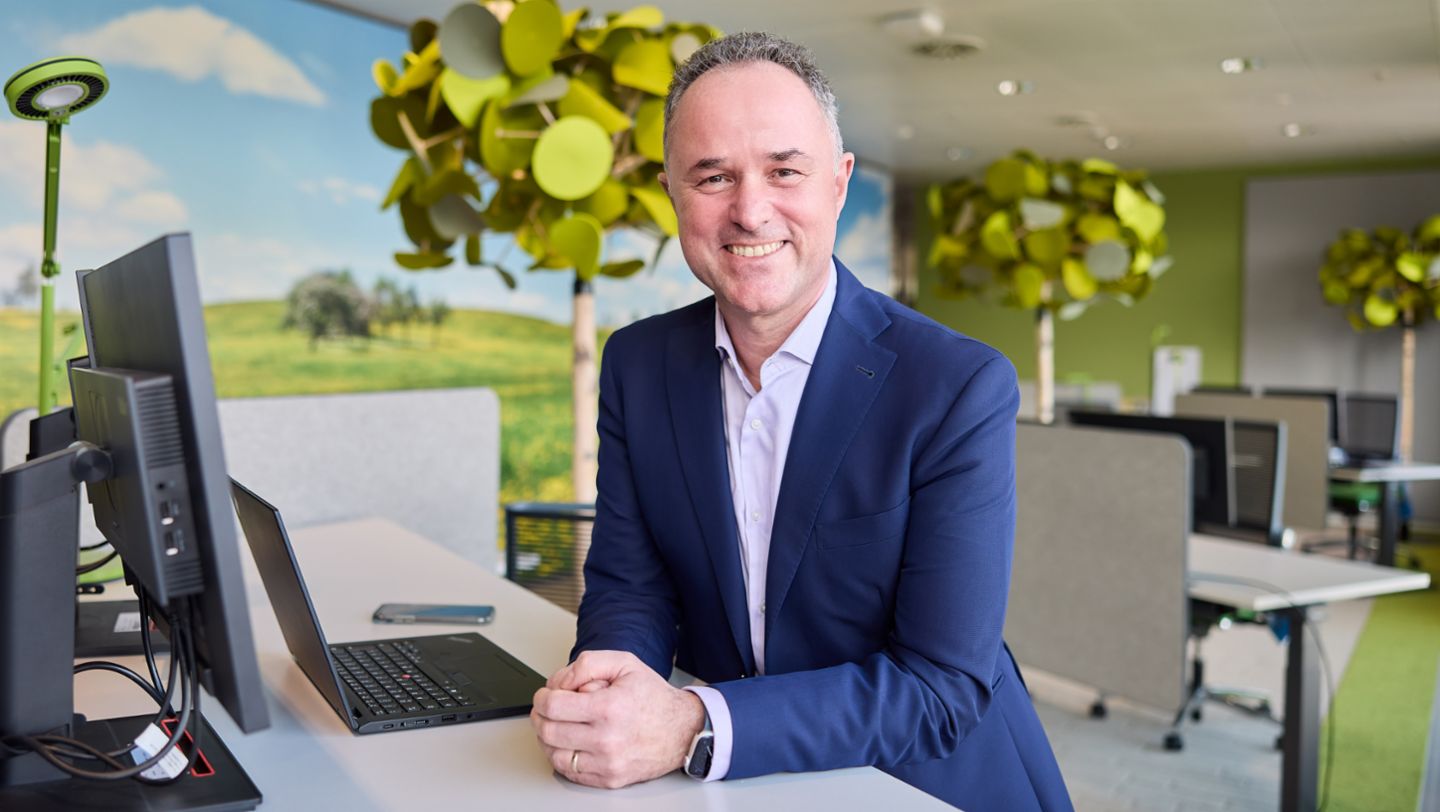"The trust of our patients is our greatest resource," says Dr. Lothar Halmer, Chief Quality Officer at Boehringer Ingelheim. He is well aware of how fragile the reputations of companies and their products can be. "It takes a lot of time to build trust, but very little to destroy it," he notes. Boehringer Ingelheim, one of the world's 20 largest pharmaceutical companies, has been developing new drugs for well over a century now. Patients, physicians, and pharmacists value its product quality. They also recognize the family-owned company's contributions to medical progress. Product and process quality are part of the DNA of Boehringer Ingelheim.

The company's future portfolio is extending to include digital therapies. One example would be apps that help people living with schizophrenia. Here, specialists from Boehringer Ingelheim's therapy areas and BI X digital lab are collaborating with the US-based medical software producer Click Therapeutics to develop a prescription digital therapy to reduce cognitive and social obstacles for people with this condition. Innovations of this type are known in the industry as "software as a medical device". As with its other new digital medical products, Boehringer Ingelheim has kept a sharp eye on special quality requirements from the start. These include meeting regulatory demands in areas such as data integrity and IT security. As Halmer explains, "The highest quality standards apply. Apps have to be just as safe and reliable for patients as the pills they take for cardiovascular diseases or diabetes."
Simultaneity means speed
What happens to quality when the pace of innovations accelerates? "Speed and quality belong together," says Halmer and proceeds to draw a comparison. "If you want to do something fast, you have to be precise. Taking the same path twice because you were poorly prepared and stumbled consumes more time than preparing well and taking it once." If certain steps can be done simultaneously instead of sequentially, that will speed up the process. Agile methods and intelligent processes can eliminate potential stumbling blocks in the first place. "Greater complexity and more technological progress mean we have to raise our standards. Flawless quality and maximum safety are our top priorities and an integral part of our innovations."
Boehringer Ingelheim is also wholeheartedly committed to a pronounced culture of quality, one shared by all departments and employees. The culture's effectiveness is fueled by a continuous process of further development—especially when it comes to innovations. Ongoing cross-functional dialogue plays a crucial role here. "Our employees integrate quality aspects into everything they do, and intervene if anything needs to be corrected," says Halmer. "They also learn from each other, including from mistakes." That leads to better decision-making processes and optimal risk management. The result: treatments are made available sooner to the people who need them. "It sounds simple in theory," Halmer admits. "But in practice, organizational changes also have to pass the requisite quality tests before they can be introduced."
A shared task
In January 2020, Boehringer Ingelheim started working intensively with a team from the Porsche Consulting management consultancy. This life sciences company, which has acquired an outstanding reputation for major advances and excellent quality, wants to put quality on a future-oriented course in all its operations and develop it continuously into a competitive advantage. That includes accounting for changes such as more digital applications, greater process complexity, and higher regulatory requirements for manufacturers of pharmaceutical products. The teams from Porsche Consulting and Boehringer Ingelheim began by conducting a strategic analysis of the fields of action and compared the results with incipient developments and special requirements in the pharmaceutical industry.
A strong portfolio of 11 initiatives and more than 70 work packages was derived, extending from data integrity and health apps to concepts for remote clinical studies of new medications. A control system was set up, and best practices from Porsche Consulting's pharmaceutical expertise were integrated into the work packages. These advances are visible and measurable with performance indicators. In conjunction with the quality team from Boehringer Ingelheim, a new and future-oriented quality culture was developed and rolled out on a global scale. "Quality is a shared task," says Marcel Geers, the project manager from Porsche Consulting. "You know it's there when it's embraced wholeheartedly in every part of the company."
Career at the company
Dr. Lothar Halmer became Chief Quality Officer of the Boehringer Ingelheim pharmaceutical company in 2020. He studied biology at the University of Konstanz in southern Germany and received a doctorate in molecular genetics in 1997. He started his career in biopharmaceutical quality control at Boehringer Ingelheim the following year. In 2008, he was posted to Vienna, where he served as Site Head Biopharmaceuticals Austria until 2013. He then held several roles in Global Quality at the company.
Greater flexibility for clinical trials
One example is the organization of clinical trials. A major shift has taken place in this area. It used to take an average of eight to ten years to develop a new medication, including the requisite clinical studies. That is changing. Even before the Covid-19 pandemic broke out, clinical studies of new drugs were no longer restricted to a few specialized centers but were being conducted at numerous locations with a decentralized approach. That enables more patients who fit the criteria to be recruited in a shorter period of time. And it saves many months, especially for less common diseases.
To ensure uniform quality in validation and high trial reliability, it is important to foster new forms of data acquisition, strong data management, and adherence to study schedules. Boehringer Ingelheim has developed some flexible solutions. One consists of direct delivery of medication to trial participants, regular on-site visits by medical personnel, and remote supervision via video calls. This has enabled clinical studies to continue at the same level of quality during the pandemic.
Quality advances of this type are of great importance to the German pharmaceutical company. After all, its business builds on an extensive R&D portfolio that concentrates on diseases with a high unmet need for medical treatment. At the time of this report (early 2022), Boehringer's human pharmaceutical research and development pipeline contains more than 60 new active agents and around 100 clinical and preclinical projects. In fact, the company could apply for authorization of up to 15 new medications by 2025—an enormous level of potential in the pharmaceutical sector. Boehringer Ingelheim's recent advances have been made in treatments for cardiac insufficiency and neuropsychiatric disorders as well as in immunology and pneumology. It also invests in research on different types of cancer, and in expanding its portfolio for pets and farm animals.

To conclude with a look ahead, this world-renowned pharmaceutical company has outstanding prospects. Boehringer Ingelheim is especially well positioned to develop treatments with even greater speed and precision for conditions in urgent need of medical attention. Moreover, this family-owned company is not dependent on short-term interests such as shareholder pressure for profits. At its headquarters in Ingelheim am Rhein, its leaders can think, plan, and develop on a long-term basis. They are guided by a desire for sustainability for generations. Digital tools such as apps, artificial intelligence, virtual training, predictive analytics, and big data will play a significant role. As Halmer emphasizes, "In developing and using these types of technology-driven innovations, here too we are making sure right from the start that we can meet our high standards of quality."
Info
Text first published in Porsche Consulting Magazine.






-2.jpg/jcr:content/STR_HydrogenD328%20(1)%202.jpg)
